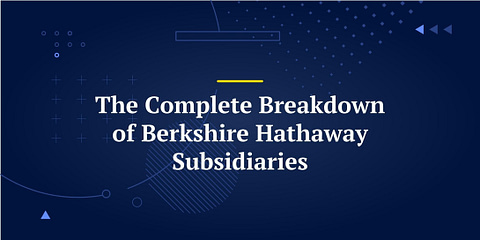Converting a traditional IRA to a Roth IRA has become an increasingly popular tax-savings technique. Per the IRS, over 1/2 of a million taxpayers converted a total of over $9 billion dollars from traditional to Roth IRA’s in 2015 alone.
If that many people are converting, it must be a good thing for me, too, right? Maybe…or maybe not.
For many people, a Roth IRA conversion is a great opportunity to pay a little tax now to save a lot of taxes later! The 2017 tax law lowered the tax rates on many taxpayers, reducing the “tax cost” of completing a conversion. But before you jump at the chance to do one, let’s take a look at what Roth conversions are – and more importantly – if they’re right for you.
☝️ As with any tax related topic, please make sure you fully understand your particular situation. The descriptions below are general in nature and additional conditions may apply! Please consider this educational, not specific advice for you to follow!
What Is a Roth IRA Conversion?
With a traditional IRA, contributions are usually tax-deductible and the investments grow tax-deferred. This means you don’t pay tax on the increase in value as it occurs. Instead, you will pay the tax on the money that is eventually withdrawn from the IRA.
With a Roth IRA, contributions are NOT deductible, but the eventual withdrawals are completely tax-free, including the earnings, for most account holders!
Tax-deferred is nice…..tax-free is better!
Congress has created a means by which an existing traditional IRA can be converted to a Roth IRA. The catch (and, of course, there is one): the amount converted must be claimed as income on your tax return in the year of the conversion. While no one likes to pay more taxes now, this often makes perfect sense. Typically, the money in a traditional IRA was contributed PRE-tax, while the money contributed to a Roth IRA is POST-tax. By claiming the conversion amount as income, you are switching the PRE-tax money to POST-tax money.
So why would you want to pay more tax now? By doing so, all of the future growth in the Roth IRA is tax-free! Plus, if you die before using all of the funds in your Roth IRA, your heirs can withdraw the money tax-free, too.
Is Converting to a Roth IRA Always a Good Idea?
Unfortunately, it seems when you’re dealing with the tax law that there are very few blanket rules that apply to everyone and every situation! Sure enough, Roth IRA conversions are another area where it’s not always appropriate for everyone. When would it have been better NOT to convert? Here are a few situations where that may apply:
- If you have to use money from the IRA to pay the tax, it may be better to not convert. In my opinion, you should only convert if you can pay the tax due with other money you have saved. In other words, if you have to take money out of the IRA in order to pay the tax to convert it, you’ve lost the benefit of the conversion! You’ll have less money left in the IRA and would have been better off leaving it as a Traditional IRA to maximize the compounding.
- If your tax rate is lower in retirement, you would have been better off waiting to pay the tax.
- If the conversion will push you into a higher tax bracket, it might not be the best thing to do! Be sure to consider, too, not just your marginal tax rate, but also the impact of the increased income on other deductions and tax credits!
- If you plan on leaving the IRA to a charity, don’t convert it! The charity doesn’t pay income tax, so there is no benefit for you or them if you do a Roth IRA conversion.
- If the US switches from an income-based tax system, you may have paid unnecessary taxes. An example of an alternative system would be a national sales tax. I don’t foresee this happening in our current political environment, but it is possible in a future generation.
Roth “Recharacterizations” – a Great Benefit From the Past That Is No Longer Allowed
Prior to the 2017 tax law, a Roth conversion could be “recharacterized” up to October of the following tax year. This simply means that the conversion could be reversed, which would eliminate the taxes due on the conversion. It was like it never happened!
👉 For example
Imagine you converted $25,000 from a traditional IRA to a Roth IRA in January 2016.
By December 2016, the converted assets were only worth $15,000 due to a market downturn. You would need to claim the $25,000 as income, but the asset converted is worth only $15,000!
Instead of doing this, you could “recharacterize” the conversion and it’s like it never took place. The assets now worth $15,000 were transferred back to the traditional IRA and you no longer had to claim the $25,000 as income.
Now that this strategy no longer exists (it was repealed by the 2017 Tax Cut and Jobs Act law), care should be taken when deciding whether to convert an IRA as it can no longer be undone.
I would suggest waiting until early December to make a conversion so that you will have a better idea of your tax situation, and less time will elapse between the date of the conversion and the due date of the tax return.
⚠️ These can get a little complicated, so be sure to check with your financial advisor.
























